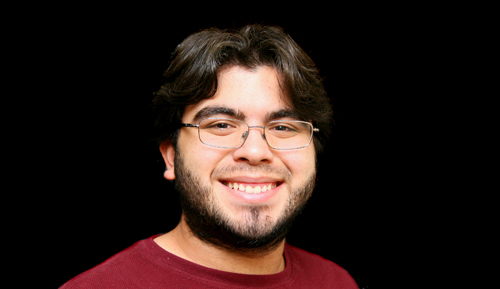The day is blue and thus requires all to reflect. Iggy, standing alone and courageous in the quad, begs us with his Basque accent: “Find God in all things.” Let us oblige our patron saint’s demand, and go down the paths of contemplation to find this … God.
Because you do love Loyola, right? You are able to see how this little campus has changed your life, how the teachings of Ignatius and Dr. So-and-So will echo for years to come.
Picture yourself in 70 years. Perhaps you are sharing a toothless kiss with your aged spouse; or maybe you’re a Jesuit. Or, heck, maybe you’re a female Jesuit. Or maybe you are married to someone of your own gender—under the banner of the Roman Catholic Church! Now, that would be something.
But before we get too far daydreaming about the future, let’s focus on your past.
Scratch that.
Focus on the past as seen from that imaginary future. How will these years seem to you then? Try to look at your best potential self. What will be important to you? Who will you love?
This is a standard Ignatian practice. Part of what St. Ignatius stressed in his writings was the active use of the imagination for contemplation. For him, daydreaming was not as much a distraction as it was an opportunity for prayer. That is, an opportunity for reflection and encounter with the divine.
What does this mean?
Often the human being has praised himself for being “the rational animal.” But the truth is that we are mostly irrational—we feel before we think. Many of our logical arguments are based on affective inclinations. Before we ever learned to use reason, we were inarticulate babies—and before that, we were embryos, pulses with the will to grow.
We go through so much before reason comes into the picture. Our bodies and minds are constantly going through processes of which we are not aware. And sometimes they’re trying to tell us something. Prayer is a way of becoming aware and of discerning what they—our bodies, minds, souls, God, the whole lot— are telling us.
And, for Ignatius of Loyola, it was a decision-making tool, of discerning God’s will in his life. Thus, with this contemplative twist, something as simple and deceivingly silly as daydreaming becomes much more profound.
Where do your daydreams lead you? How do they make you feel? According to Ignatius, if you are left with an elated feeling after a daydream, then it is pointing to something good. But if you are instead left feeling dry or anxious, then you must reflect and think critically on it. What is it trying to tell you?
We college students are in a crucial point of our lives. What should we do in the face of our uncertain futures? For myself, I’m going to sit or lie down and daydream about myself in 70 years.
Who knows? Maybe I’ll be someone then.
Rolando Lopez can be reached at
ralopez@loyno.edu






